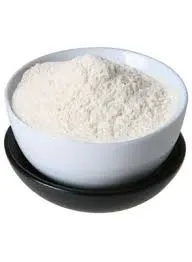
ag. . 11, 2024 01:46 Back to list
Understanding the Meaning and Applications of HPMC in Various Industries
Understanding HPMC What Does It Stand For?
HPMC, which stands for Hydroxypropyl Methylcellulose, is a non-ionic, water-soluble polymer derived from cellulose, a naturally occurring biopolymer found in the cell walls of plants. This versatile compound has gained remarkable popularity across various industries, including pharmaceuticals, food processing, cosmetics, and construction, due to its unique properties and wide range of applications.
What is HPMC?
HPMC is a modified cellulose ether that is prized for its excellent film-forming, thickening, and stabilizing abilities. It is made by chemically modifying cellulose through the introduction of hydroxypropyl and methyl groups. The degree of substitution of these groups can be tailored during the manufacturing process, resulting in HPMC with specific solubility and viscosity characteristics. This customizability allows users to select the most appropriate type of HPMC for their needs.
Applications in Pharmaceuticals
One of the most significant applications of HPMC exists within the pharmaceutical industry. It functions as a viscosifying agent in liquid formulations and a binder in tablet preparations. HPMC plays a crucial role in controlled-release formulations, as it can regulate the release of active pharmaceutical ingredients (APIs) over time. This property is particularly useful for medications that require sustained release to enhance therapeutic efficacy and patient compliance.
Furthermore, due to its compatibility with a wide range of compounds, HPMC is often utilized in the manufacturing of capsules, suspensions, and gels. Its safety profile is well-established, making it suitable for various medicinal products, including those designed for sensitive populations, such as children and the elderly.
Food Industry Impact
hpmc stands for

In the food industry, HPMC serves as a food additive and thickening agent, providing texture and stability to various products, including sauces, dressings, and baked goods. It is particularly popular in gluten-free formulations, as it helps to improve the texture and moisture retention of gluten-free baked items that may otherwise be crumbly or dry.
Moreover, HPMC is recognized for its ability to form stable emulsions, making it a valuable ingredient in products that require the combination of oil and water. Its use in food products is generally regarded as safe (GRAS), giving manufacturers confidence in utilizing this compound in their formulations.
Cosmetic and Personal Care Products
The cosmetic industry also benefits significantly from HPMC, where it is employed as a thickener and stabilizer in lotions, creams, and hair care products. Its film-forming properties provide a smooth feel and improved application characteristics to cosmetics, making it a popular choice for formulators.
Construction and Building Materials
Beyond food and pharmaceuticals, HPMC finds application in the construction industry, particularly in water-retaining agents for cement-based materials. It enhances the workability, adhesion, and durability of products like mortars and plasters. Its ability to retain water is essential for ensuring a proper curing process, which is crucial for achieving the desired strength and durability of building materials.
Conclusion
In summary, HPMC stands for Hydroxypropyl Methylcellulose, a versatile and effective polymer with a myriad of applications across various industries. Its unique chemical properties allow it to serve as a thickening agent, binder, and stabilizer in pharmaceuticals, food, cosmetics, and construction materials. As industries continue to seek more efficient and effective ingredients to improve product formulations, HPMC will undoubtedly remain a vital component in innovative solutions. Whether you're taking a medication, enjoying a gluten-free pizza, or applying a moisturizer to your skin, HPMC plays an essential role in enhancing the quality and effectiveness of numerous products in our daily lives.
-
Why HPMC is a Key Additive in Wall Putty Formulations
NewsAug.05,2025
-
Redispersible Powder in Decorative Renders: Function Meets Finish
NewsAug.05,2025
-
Redispersible Powder for Interior Wall Putty: Smooth Results Every Time
NewsAug.05,2025
-
HPMC’s Water Retention Capacity in Dry Mortar Applications
NewsAug.05,2025
-
HPMC Factory Contributions to Liquid Detergents
NewsAug.05,2025
-
How HPMC Factory Products Change Detergent Textures
NewsAug.05,2025







